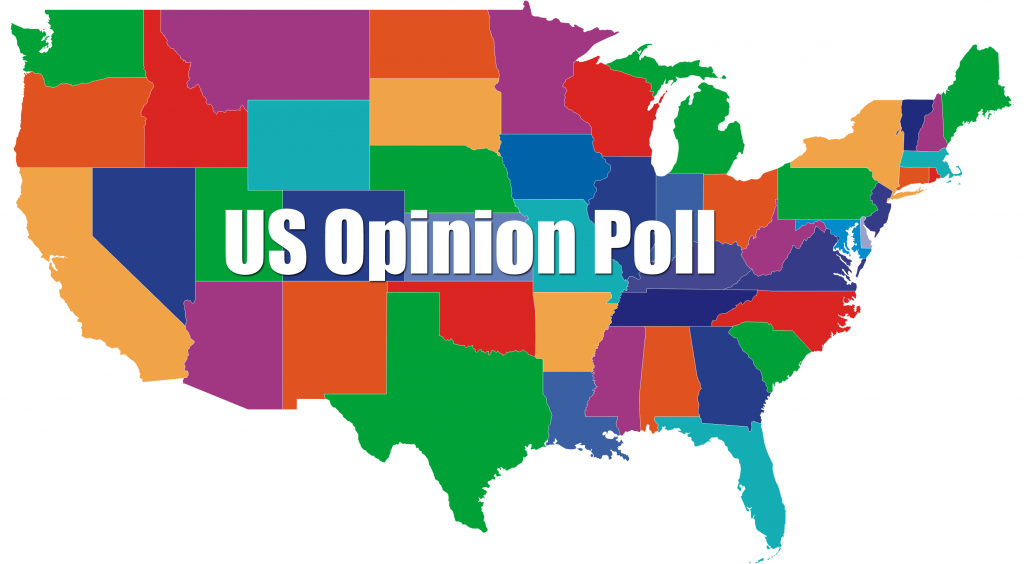The Polling Center at Jackson State University’s Institute of Government released a national survey of 1,000 adults that was conducted Dec. 7-13, 2016.
Among the results:
-
Just 65.9% report an “Enthusiastic Vote” in Nov. 2016;
-
More Americans are dissatisfied with election results than satisfied
-
Reasons for election result satisfaction: change, economy, removing the Clintons
-
Reasons for election result dissatisfaction: Trump’s morals, qualifications and positions
-
Trust in the U.S. media accuracy: just 22.1%
-
Slim majority, 50.9%, say election was fair and honest
On Voter History
Voters in the November 2016 presidential election were only somewhat enthusiastic about their vote. Two-thirds, 65.1%, reported being very (42.2%) or somewhat enthusiastic (22.9%) to go and vote for president. One-third, 33.9%, indicated they were not very (18.0%) or not at all enthusiastic (15.9%).
On The Election Outcome
More Americans polled about the outcome of the election suggested they were dissatisfied (somewhat dissatisfied or not at all satisfied) than those reporting satisfaction (somewhat or very satisfied) – 49.5% to 45.8%, respectively.
Those indicating they were “very satisfied” (26.6%) were outnumbered by those suggesting they were “not at all satisfied” with the November, 2016 election results (39.1%).
 The primary reasons cited by those who were satisfied with the presidential election results included: we need change, the economy will improve, opposed to the Clintons, Trump will fix or replace Obamacare and lower healthcare costs, Clinton is a criminal, Trump will protect the nation and support the military, Trump will clean house, and Clinton is morally offensive.
The primary reasons cited by those who were satisfied with the presidential election results included: we need change, the economy will improve, opposed to the Clintons, Trump will fix or replace Obamacare and lower healthcare costs, Clinton is a criminal, Trump will protect the nation and support the military, Trump will clean house, and Clinton is morally offensive.
A second tier of reasons for satisfaction included: U.S. Supreme Court nominees will be more conservative, we will fix immigration and build a wall, and Trump does not owe anyone anything.
In a third tier, there was less frequency of mention for the following reasons: Trump is conservative, the systems were rigged against everyday Americans, and Trump ran a positive campaign.
In a similar question for those dissatisfied with the November 2016 election results, the primary reasons included: Trump is morally offensive, Trump is not qualified to be president, dislike Trump/his positions, and Trump is a racist.
A second tier of reasons for dissatisfaction included: Clinton has experience, Trump is too wealthy to understand working Americans, Clinton would have been the first female president, Clinton would have protected Obamacare, and Clinton would have selected nominees for the U.S. Supreme Court.
With less frequency, a third tier of reasons for satisfaction was reported as: Clinton would have led as a liberal/progressive, Clinton would be best able to improve the economy, Clinton ran a positive campaign, and Trump is too conservative.
Americans appear unhappy with both the Trump and Clinton campaigns. Significantly more of those polled were dissatisfied with different aspects of the campaigns than were satisfied. For example, nearly three times as many of those surveyed (59.1%) were dissatisfied with the overall tone of the campaigns than were satisfied (19.3%). Results are shown here:
Dissatisfaction over satisfaction:
- The overall tone of the campaign – 59.1% to 19.3%
- The length of the election cycle – 51.2% to 20.9%
- Civility shown by Hillary Clinton during the campaign – 38.6% to 36.3%
- Civility shown by Donald Trump during the campaign – 56.7% to 22.6%
- Civility shown by Hillary Clinton supporters – 44.8% to 31.3%
- Civility shown by Donald Trump supporters – 53.6% to 25.9%
- Expressions of unity by both candidates following the outcome – 38.4% to 27.6%
- Behavior of Clinton supporters following the election results – 51.1% to 27.9%
On Confidence in the Election Process
Most Americans surveyed, 50.9%, expressed strong trust that the November 2016 election was conducted fairly and honestly with legitimate results. Another 30.3% had little/no trust in the election results.
By a 3-to-1 margin, Americans had little/no trust that the U.S. media accurately conveyed news without bias (60.5%) compared to those that held strong trust at 22.1%.
Somewhat more Americans had trust and confidence in the Electoral College than those that did not – 42.8% to 35.9%, respectively.
Americans were evenly split between those having strong trust/confidence and those having little or no trust/confidence in Americans to make the right decisions in our elections – 40.1% to 39.1%, respectively.
ABOUT THE POLL: The Poll was conducted by The Polling Center at Jackson State University’s Institute of Government. Polling by the Center is conducted on a regular basis and may also include spontaneous polling on occurring events. Click here to see FULL POLL REPORT.
METHODOLOGY: The Poll sampled opinions of 1,000 approximately proportional to state population contribution nationwide. The survey was conducted Dec. 7-13, 2016. All surveys were conducted using an online survey instrument. The poll has a +/- 3.0 percent margin of error at a 95 percent confidence level on a composite basis.






